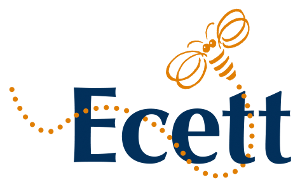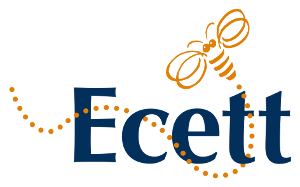Who Do We Support?
Ecett Networks is designed for professionals seeking to enhance their skills, knowledge, and expertise through international internships and peer exchanges. Our program is ideal for individuals working in social, medical, educational, and youth sectors who want to learn from experienced counterparts abroad. Whether you are a frontline worker, manager, or trainer, Ecett offers a structured, high-quality learning experience tailored to your professional needs.
By participating in our internships, trainees not only gain practical insights but also contribute to the exchange of innovative practices within their organizations and networks. With support from our helpdesk and e-learning platform, Ecett ensures a seamless, impactful training process, helping professionals bring valuable improvements to their workplace.
Internships
Lifelong learning with Ecett
Internships abroad to meet your peers
Ecett trainees launch their project starting from a problem to be solved at their place of work. The whole training process is centered on the “quality” objective for the service users.
Each candidate trainee addresses his/her request to the helpdesk speaking his language . This helpdesk will identify hosting places having the expertise and the qualifications sought by the trainee and supports the trainees during their knowledge exchange project
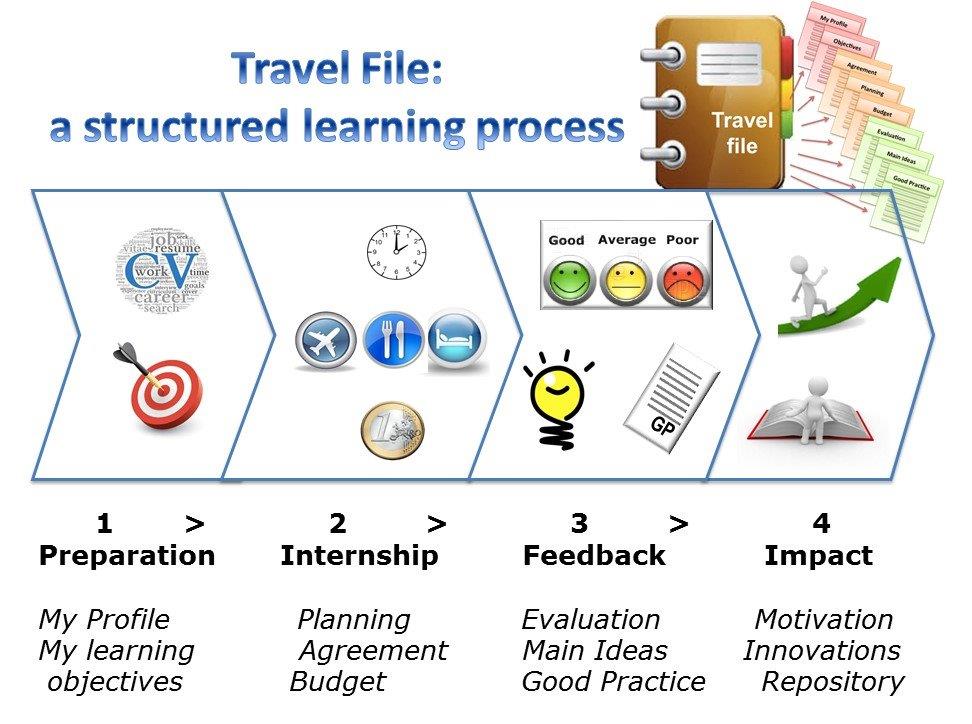
1. Matching of the internship
Thanks to the Good Practice database (more than 400 good practices posted to this day) the network expertise is already available.
The host database (more than 1200 places of actual or potential hosts) allows to find the host that will give the most satisfaction to achieve the objectives that the intern has set before the departure.
2. Organizing the trip
The intern creates his profile and organizes his travel using tools such as the Planning and the Budget. The agreement signed with the host will avoid any loss of time and setbacks in order to optimize the time of the internship.
3. Optimize the impact
Thanks to the feedback and assessment tools, the intern will identify a few key ideas which would be directly useful in his/her work.
- Innovation or progress inspired by the internship or Good Practice.
By sharing their feedback and enthusiasm in and around their organisation, the trainees enable the transfer of innovative practices to their department and in their professional network.
Other benefits: meta-competencies
Acquisition of competencies such as autonomy, independence, interest to learn, importance of good communication, sense of responsibility & organization, maturity, professionalism, rigor and a better judgment and discernment. The internship evaluations by trainees and their employers show that 87% of the trainees say that their objectives have been met and that these exchanges have a concrete impact on how they think, talk and work after the return of internship (University of Ghent, 2008).
After the internship, the interns will feed the databases of:
♦ Good Practices by creating his own Good Practice observed during the internship.
♦ Host Institutions, if he has discovered a new host, by creating a new ‘host ‘ card.
Testimonies
The Ecett learning method is very flexible :
“A” certificate: An individual can leave alone, only once for visiting one host, for an A internship (alone or accompanied by some colleagues) or he/she can accumulate Ecett internships and make other voyages of A, B or C type.
“B” certificate: He/she can choose a “B” internship (two days or more) in order to learn good practice. Those which present their good practice in an Ecett workshop receive a “B” certificate.
“C” certificate: Gradually, some trainees will accumulate ten days of training by visiting three different centers and by reporting three good practices and an execution project which they will present at the “C” jury.
Mobility grants for Internships
Mobility grants are awarded by Erasmus+ to enable staff members to visit their counterparts abroad and participate in their daily work for 2 to 5 days. Deadline for application: each year in February.
Main actors
European Union: the Erasmus+ program pays the transport, housing and subsistence expenses during these observation internships. Ecett supports the applying organisations.
The signatory organization perceives subsidy and sends its personnel in training abroad. This one must work out the application file, submit a final report (at the end of 18 months) and organize the internship exchanges.
Ecett-Networks NGO brings its experience and services to prepare the Mobility application file, to put the Ecett method at your disposal
Other benefits
It is about the acquisition of competencies such as autonomy, independence, interest to learn, importance of good communication, sense of responsibility & organization, maturity, professionalism, rigor and a better judgment and discernment. The internship evaluations by trainees and their employers show that 87% of the trainees say that their objectives have been met and that these exchanges have a concrete impact on how they think, talk and work after the return of internship (University of Ghent, 2008).
An interesting win-win…
After the internship, the intern will feed the databases of:
♦ Good Practices by creating his own Good Practice observed during the internship.
♦ Host Institutions, if he has discovered a new host, by creating a new ‘host ‘ card.
The method reveals here all its power since it supports the learning of actors in the field … by these same actors in the field!
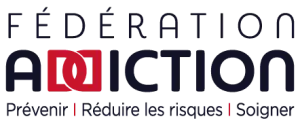
Fédération Addiction

PFST

CEIS Roma

CEID

Argo

Kethea

Monar
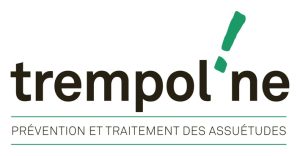
Trempoline
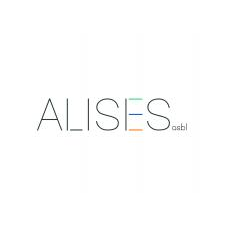
Alises
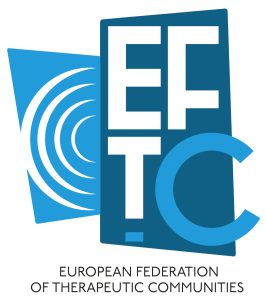
EFTC
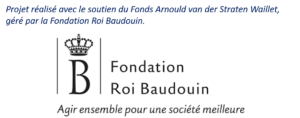
Foundation Roi Baudouin

Coolmine

Magdalena

Ceis Formazione
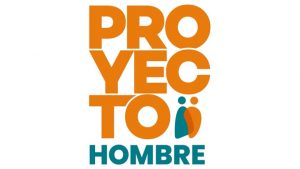
Proyecto Hombre
To become a member of Ecett-Networks, simply send your motivated request to contact@ecett.eu. Membership is free. You will be contacted by our helpdesk to sign the partnership agreement.
